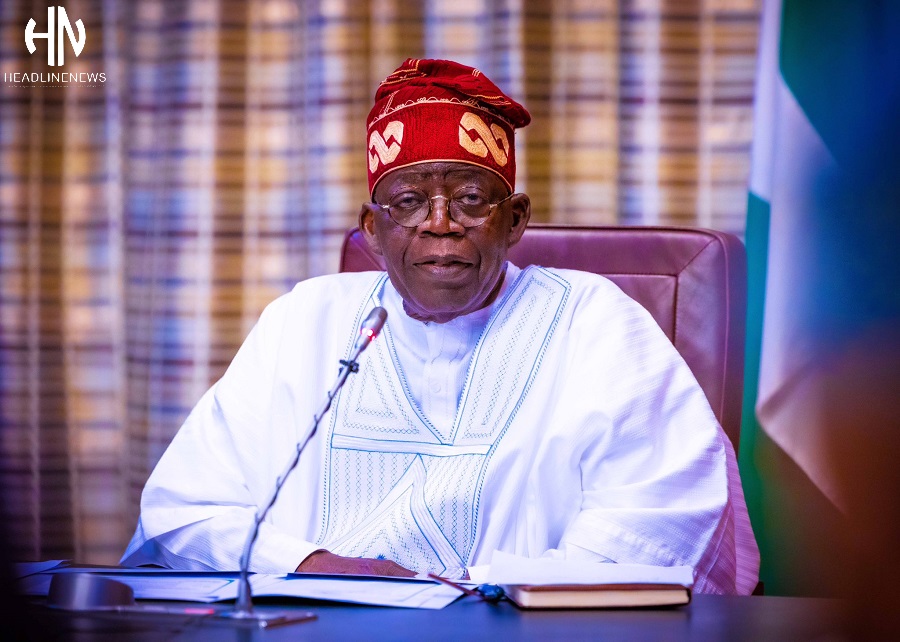There is a quiet war raging in Nigeria, not one of guns and bombs, but of ideas, control, and survival. At the heart of it is a long-standing battle over who steers the destiny of the nation, who controls its vast resources, and who sets the agenda for over 200 million people.
For decades, a powerful elite often referred to as the “Fulani oligarchy” has held the reins of centralized power in Abuja, dominating the government, the economy, and Nigeria’s most lucrative institutions. But today, that grip is weakening. And they are fighting back, hard.
Why? Because for the first time since 1999, Nigeria has a president, Bola Ahmed Tinubu, who appears determined to restructure the system, not just in words, but in action.

Restructuring: The Demand of a Nation
For years, Nigerians across the Southwest, Southeast, South-South, North Central, and even among the Indigenous Hausa communities, have demanded true federalism, often referred to as “restructuring.” They want a system where regions control their own resources, manage their own affairs, and chart their own development paths—free from the stranglehold of a centralized authority that has consistently failed them.
Separation is emotional. Regionalism is historical. But restructuring is the practical, popular solution. And Tinubu is the first president bold enough to act on it.
Why the Pushback Is Fierce
From his first days in office, Tinubu took concrete steps toward fiscal federalism, a foundational principle of restructuring. His administration passed a Tax Reform Bill that prioritized productivity over population. States and cities that generate revenue—whether through manufacturing, trade, or agriculture—now stand to benefit more directly.
This reform broke decades of financial dependency and shattered the foundation of the oligarchs’ influence. For the first time, regions like Nnewi, Aba, and parts of the Middle Belt are beginning to see the fruits of their labor stay in their communities.
Naturally, those who thrived on a flawed allocation system—where population (real or inflated) mattered more than productivity—are furious. They are losing the economic leverage that kept them powerful.

Shifting the Center of Power
Tinubu didn’t stop at tax reforms. He began restructuring key national institutions—removing long-entrenched interests from the NNPC, Customs, NIMASA, the Ports Authority, and the Mint. He is repositioning agencies to serve the entire country, not a privileged few.
Even the creation of the Ministry of Livestock Development sent shockwaves. It quietly signaled the end of open grazing and the rise of ranching, threatening the traditional nomadic cattle routes that had long been a tool of influence for some elites.
And now, the president is backing a bill to restore regional government—the ultimate threat to those who fear decentralization.

A Leader They Cannot Control
Tinubu’s greatest sin, in the eyes of the old guard, is that he cannot be controlled. Unlike some Southern leaders of the past who bent to Northern influence, Tinubu has stood firm. He’s calling the shots—and they don’t like it.
Even Nigeria’s foreign reserves, which stood at a dismal $2 billion when he assumed office, are now reportedly over $45 billion. Debt to foreign firms has been cleared. Airline operations are normalizing. Foreign investors are watching again. Yet, these achievements barely matter to those who only care about retaining power.
Enter the Disruptors and the Collaborators
In desperation, the old establishment has turned to southern collaborators—ambitious politicians willing to undermine their region for a seat at the table. They now lead the charge against Tinubu, screaming louder than the North ever did, cloaking self-interest in the guise of public concern.
Even Peter Obi, hailed by many as a beacon of hope, may not escape the same traps. Will he implement restructuring? Will he challenge the power brokers who helped install him, if given the chance? Doubtful. Promises have been made. Deals sealed. And whispers suggest he’s already agreed to serve just one term—for the North.
This Isn’t Just About Tinubu
This fight is not about Tinubu as a person. It’s about what he represents: a break from decades of political manipulation and a real shot at a balanced Nigeria. He is decentralizing power, redistributing wealth, and opening up opportunity for every region—from the Niger Delta to the North Central plains.
Even the Indigenous Hausa people, who’ve lived under the shadow of Fulani dominance, are beginning to awaken. Their resources, their voices, their future—long buried under elite politics—are finally finding space to emerge.

If He Fails, We All Lose
Make no mistake: if President Tinubu is sabotaged and fails, not because of incompetence, but because of calculated resistance to change, then Nigeria fails with him. And the window for real restructuring may not open again for a very long time.
This is why Nigerians must stay alert. This is not the time for blind opposition, emotional politics, or social media hysteria. It is a time for clarity, for courage, and conviction.
We must support the ideals, not just the man. We must protect the vision, not just the position. And we must demand fairness, productivity, and justice as the new standard for governance.
Because this battle is bigger than any one president. It’s about the soul of Nigeria and who gets to shape its future.




